Market Trend
The interior design and home décor market in China was worth ¥3.4 trillion in 2015, up 8% over the previous year. The market is gradually expanding along with the increase in housing demand and income growth.
Before the home décor services listed online, it was not easy for home owners to find the best solution to suit their needs, with thousands of companies to choose from, not to mention opaque pricing and insufficient credit information. At the same time, home décor companies found it difficult to pin down actual customers, as most home owners were looking for a free sample design so they could compare companies and their offerings.
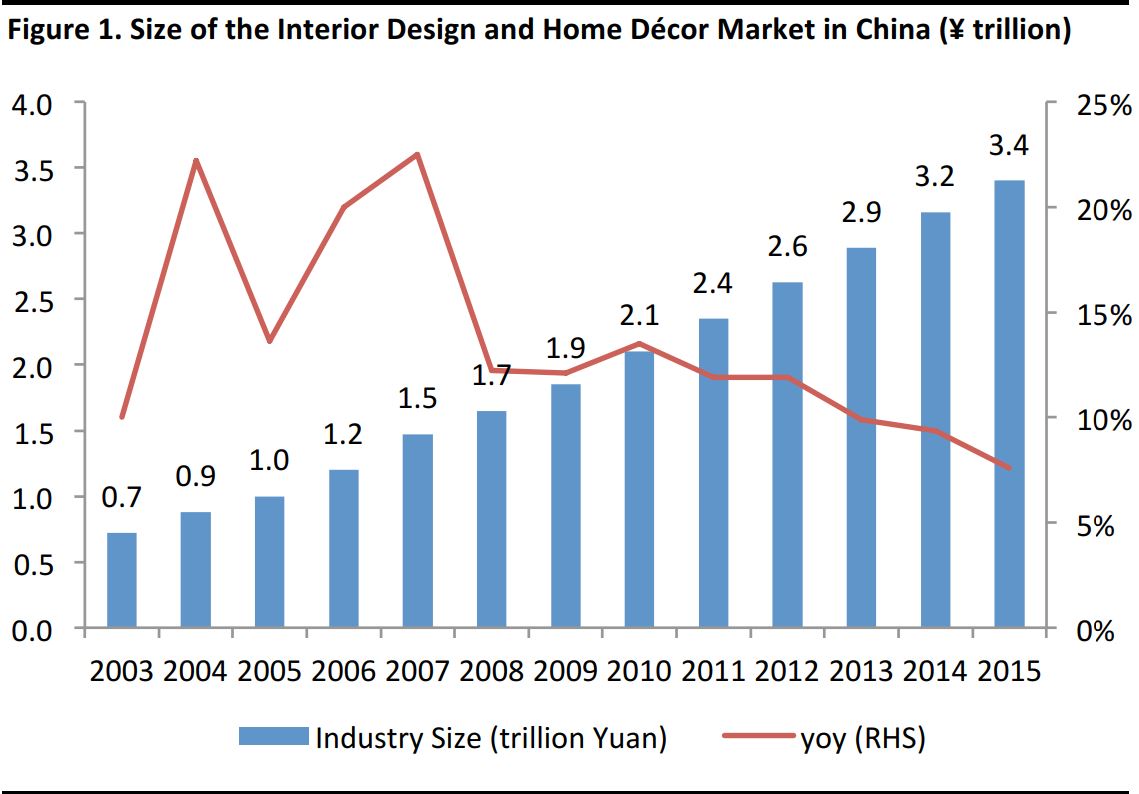
Source: China Building Decoration Association
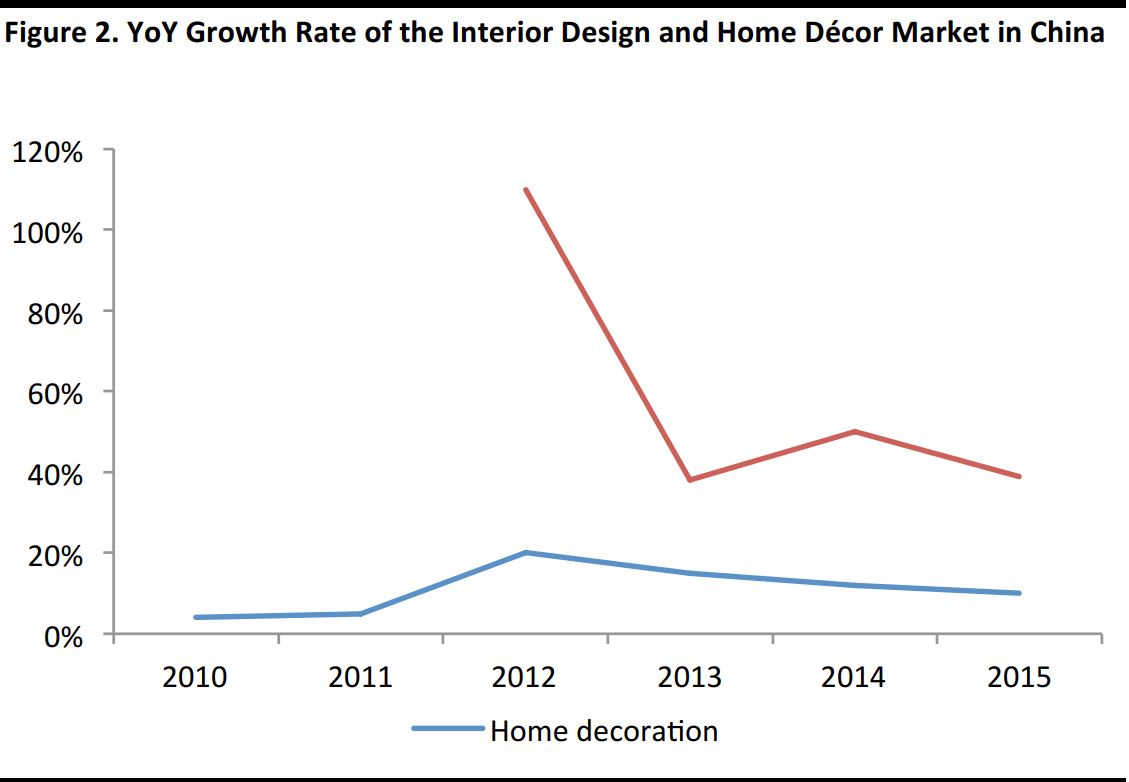
Source: China Building Decoration Association
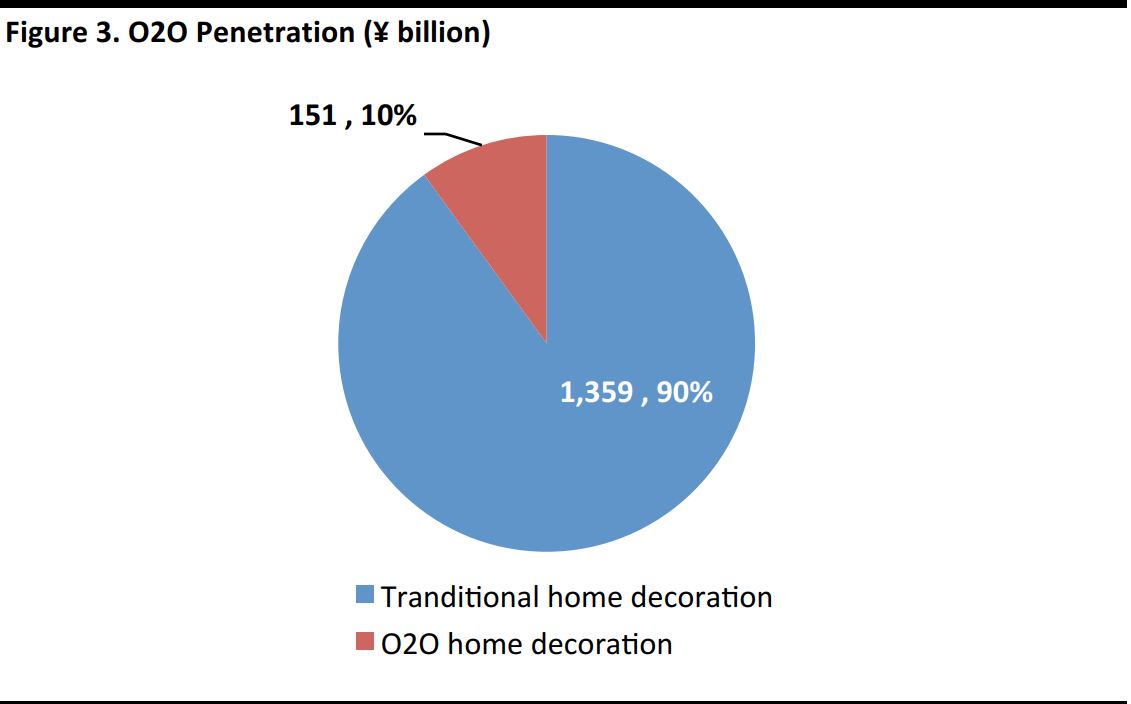
Source: China Building Decoration Association
Company Background
There are more than 100,000 companies trying to capitalize on this growing market. Yet, the feedback for the overall industry is negative, due to a lack of transparency, information asymmetry and lack of protection for consumers. Against this backdrop, Robin Wang Guo Bin saw this as an opportunity to set up an online platform to connect consumers and companies.
Wang Guo Bin is the founder and CEO of Tubatu who was selected as one of China’s ten décor market leaders in 2015 and rated as one of the top 35 young entrepreneurs under 35 by iheima.com in 2016.
Wang Guo Bin
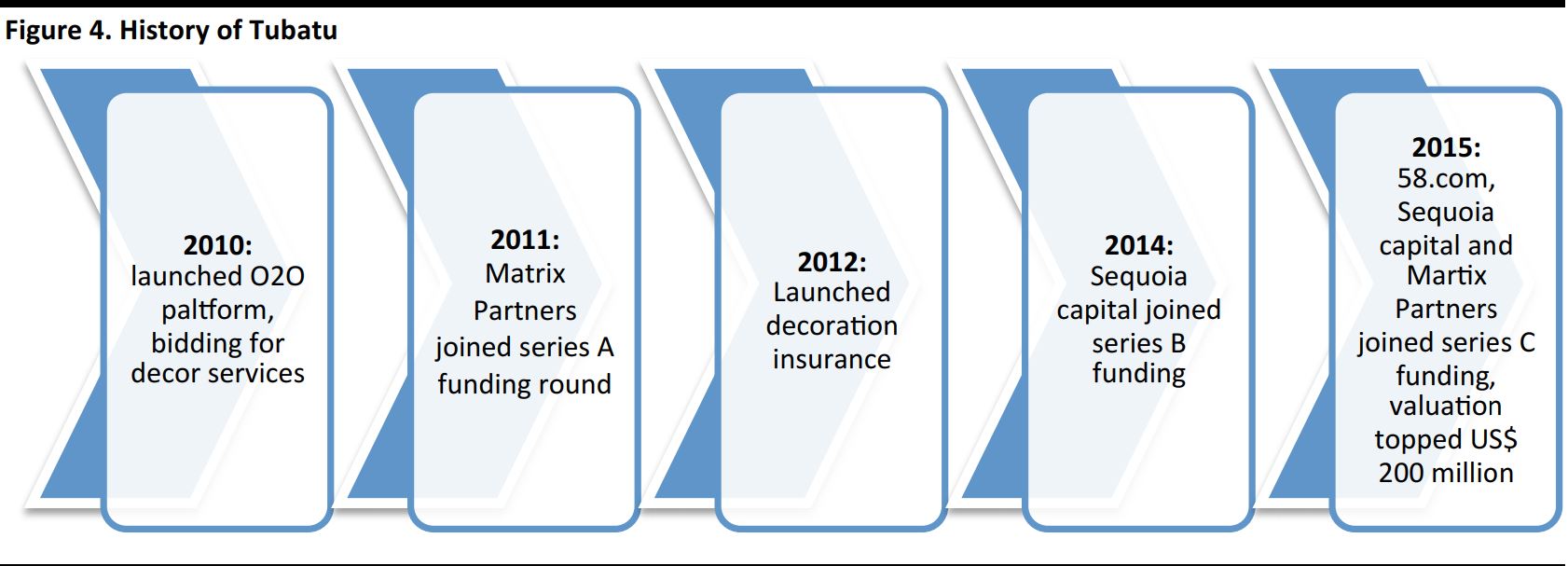
Source: Company
It is called “Tubatu,”which is a metaphor in Chinese to mean an agile team that works together to overcome challenges, launched as an O2O platform for interior design and home décor in 2008.
The website serves as an agent offering a variety of home furnishing solutions: home décor companies are encouraged to take the initiative to provide free services such as design drafting and pricing so consumers can easily gather all the information they need to choose the solution that best suits their needs. Home décor companies upload their finished designs, renovation cost estimates and other services on Tubatu, and then home owners can browse and select their favorites from among them.
For customers that do not have the time to search, they can choose to upload their own decoration expectations and design ideas and let the best bidder win the contract.
Tubatu will also analyze the data from both sides and suggest the most suitable solution that matches with the home owner’s demands.
All details about pricing, design and construction time are transparent to the customer. By achieving information symmetry between buyers and service providers, Tubatu found the key to transforming the traditional home décor market.
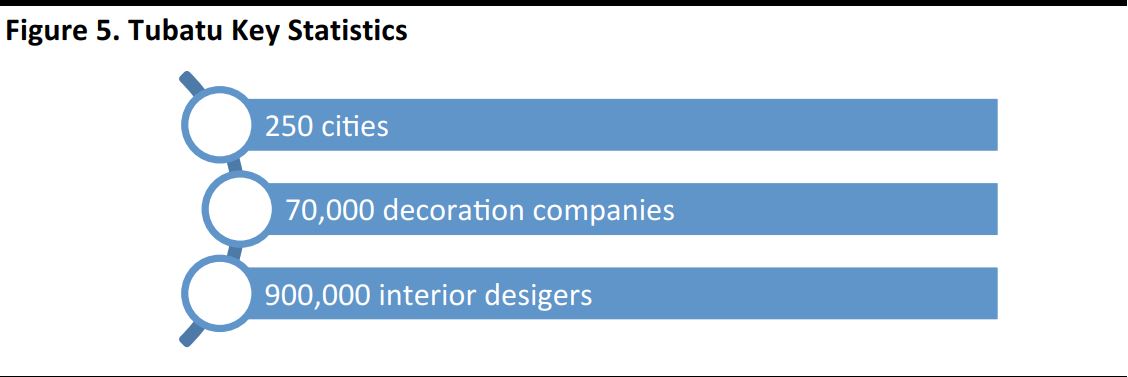
Source: Company
An Unconventional Supervisor
As the volume of clients grew, the inconsistent quality of finished projects posted a potential downside risk to Tubatu’s reputation. To combat this, the company launched the “decoration insurance” service in 2012.
Upon signing the “decoration insurance”, Tubatu acts as a trust and shoulders 100% of the construction fee and provides a fee schedule that regulates the relationship between the home owner and the home décor service provider. The first 5% is used to pay for material costs. After that, the construction cost is broken down into three main parts: the water system, wall & plastering and painting. The home owner pays altogether 75% of the construction fee separately upon each stage of completion. The remaining 20% is paid after the project is finished. During each stage of completion, the home owner has the right to ask for a progress check and can withhold payment until the home owner is satisfied with the project.
If the home owner does not want to get involved in monitoring the project, Tubatu has a supervision team that can oversee every step of the construction process.

Source: Company
Penetrating into E-commerce
Leveraging its growing reputation among consumers, Tubatu aims to develop a vertically integrated business model. In 2015, the company reached out to upstream suppliers of construction materials, furniture and household items. After six months of preparation, Tubatu added a new feature to its website – B2C e-commerce for home décor. By setting up an intermediate transition warehouse, Tubatu can streamline the factory-to-customer logistics process.
Tubatu gathers all the required materials and products from different suppliers and stores them at its transition warehouse, then arranges to deliver the items altogether to the customer.
Tubatu has warehouses in over seven cities, including Beijing, Shanghai and Shenzhen. To further leverage its supply-chain network, Tubatu requires all construction projects to use suppliers that it is already partnered with on its e-commerce platform.
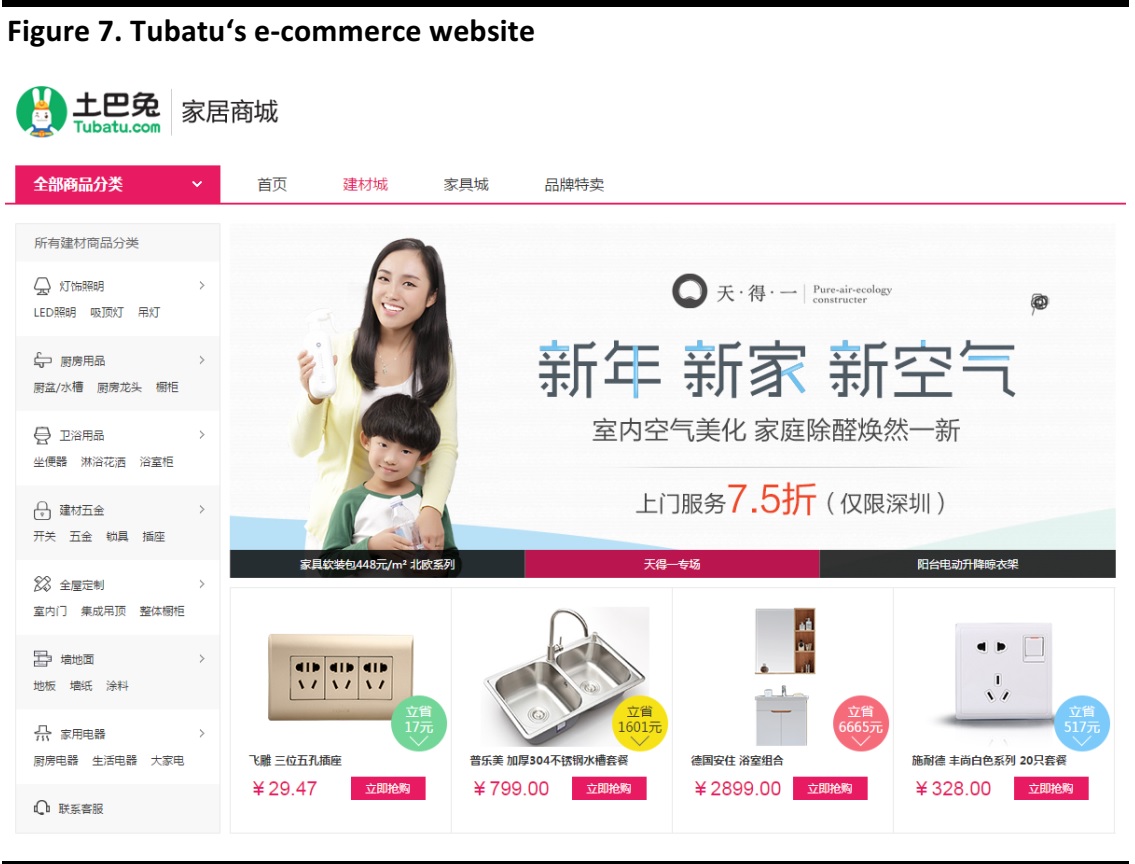
Source: Company
Our Thoughts
We think Tubatu can be a disruptive force to the traditional interior design and home décor market due to three factors:
- Transparent industry information sharing: For most companies, keeping certain information, such as the quality of the materials and construction techniques used, hidden from customers is a practical way to make a decent profit. Yet, this information imbalance may not hold for long, given the volume of information that is widely available on the internet. Facilitating information sharing, Tubatu immediately generates trust among its target audience.
- Factory-to-consumer: Thanks to Tubatu’s e-commerce platform, consumers are able to place customizable orders directly to the factory and save costs they would incur if they went through an intermediary. Cutting out intermediaries can effectively lower the cost of furnishings, which gives Tubatu an edge over traditional home décor companies.
- Turnkey solutions: From the customer’s perspective, Tubatu has simplified the entire home decoration process to only three steps: choose the best option, check the finished project and pay for the service. Most consumers lack knowledge of construction and interior design, e.g., the quality and cost of the materials used, so Tubatu’s solution helps eliminate this pain.








